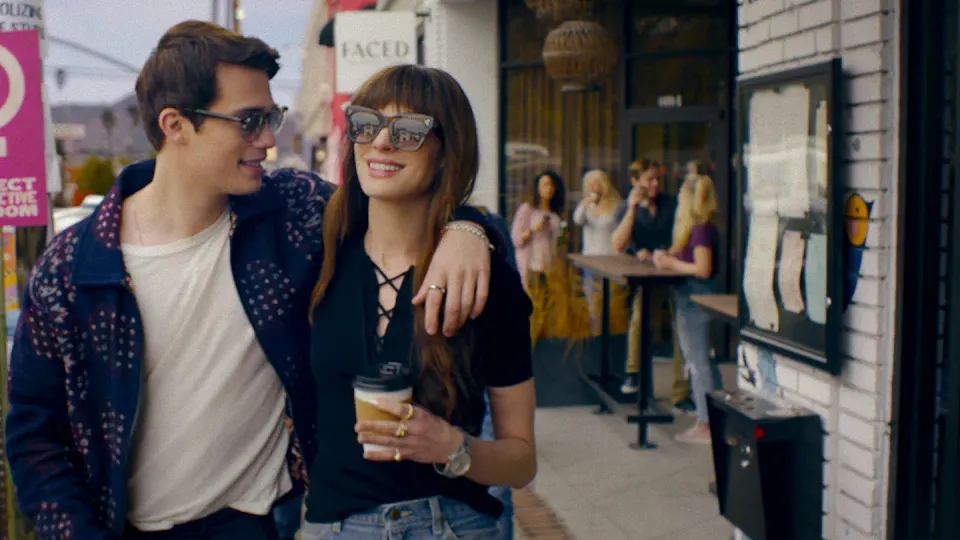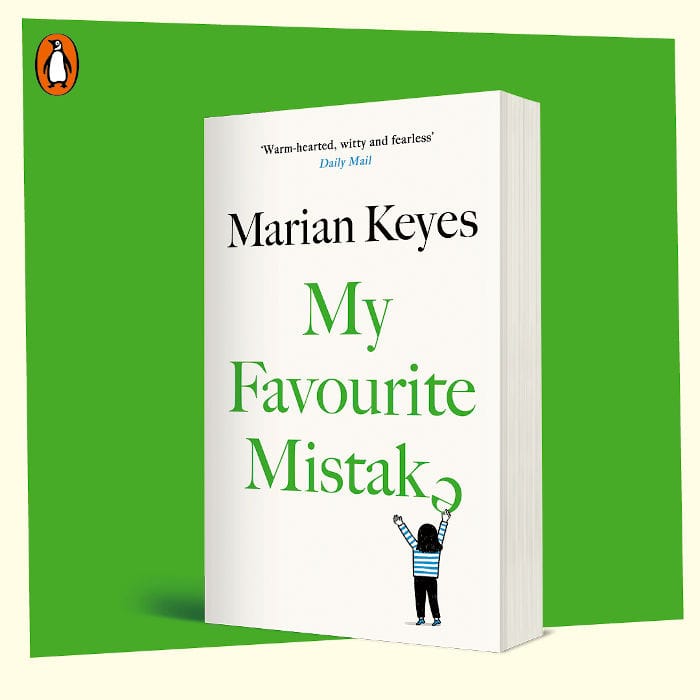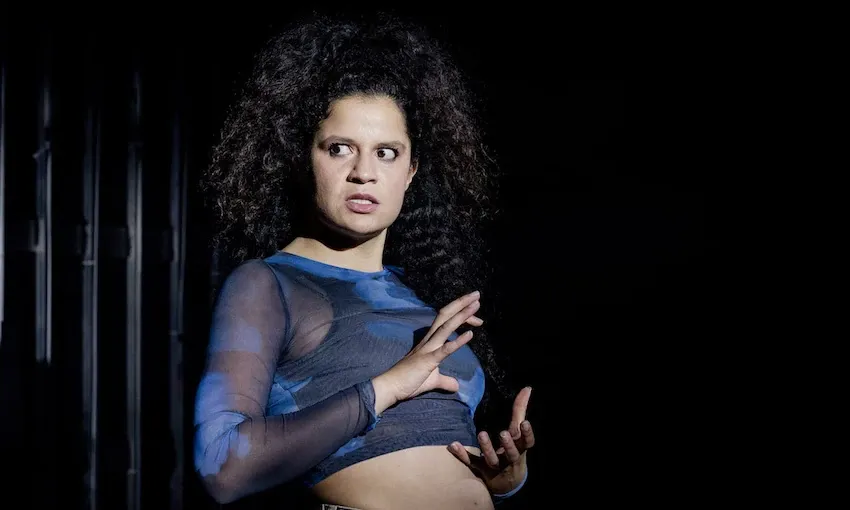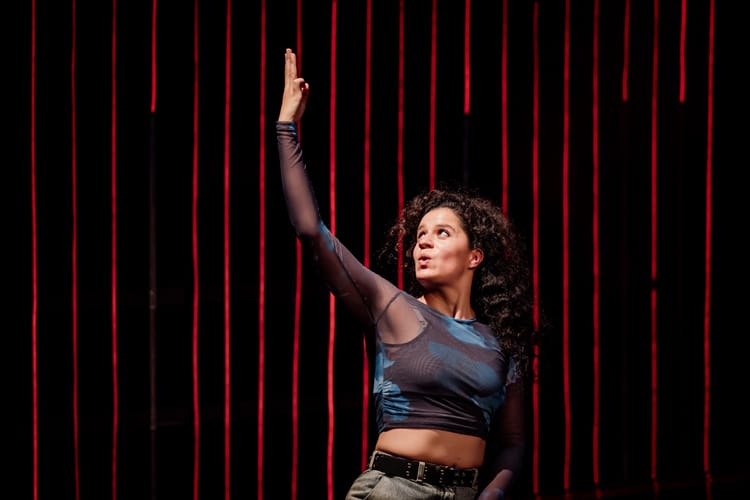Critical Corner: The Idea of You, My Favourite Mistake

In this edition of Critical Corner, reviews of Anne Hathaway romance The Idea of You and the new novel from Marian Keyes.
Fantasy comes in many forms. There’s the actual genre of fantasy, covering everything from Tolkien’s elves to LeGuin’s wizards to Jemesin’s orogenes. There’s science-fiction, distinct from fantasy, but adjacent on bookshelves and in people’s hearts. And finally, there is the kind of fantasy that is embedded in other genre; the fantasy that is willful suspension of disbelief, an investment in ludicrous logic, or characters that defy emotional gravity.
The Idea of You, a romantic drama starring Anne Hathaway (you know Anne Hathaway) and Nicholas Galitzine (Red, White and Royal Blue), is also, undoubtedly a fantasy film. Hathaway plays the unlikely named Solene Marchand, a gallery owner recently divorced from her cheating ex-husband, who ends up going to Coachella with her teenage daughter. This teenage daughter initially wanted to see August Moon, a boyband that hews closer to Brockhampton than One Direction, but is now more excited about St. Vincent. After a series of mishaps, Solene ends up in the trailer of equally unlikely named Hayes Campbell (Galitzine). They hit it off, despite, gasp, Solene being 40, and Campbell existing in the wake of one of the biggest boybands on the planet.
This sounds like the set-up for a film that you would immediately flip past on a hotel TV, or find in an op-shop bargain bin. However, it ends up being a surprisingly mature, relatively charged, film about two people working past their checked baggage to get through to a love that might just be worth it. Marchand’s baggage? She is 40, not ready to love so soon after her heartbreak, and absolutely not ready for all the trauma that comes with dating a worldwide celebrity with millions of fans. Campbell’s baggage? He’s famous, a lot of people love him, and he has some really terrible tattoos.
It’s a fun time, even if we have to address that Anne Hathaway is nobody’s idea of an average 40 year old woman. Not only does not look 40, she looks only slightly older than Galitzine (who is the kind of dreamy that would’ve rewired my brain chemistry as a teenager) and barely older than the actor who plays her daughter. It is here that the suspension of disbelief comes in. Hathaway doesn’t just perform Solene’s insecurity believably, she also performs a woman who knows she is attractive, worthy of the attention that is being paid to her, and isn’t just mature, but deeply comfortable in herself. We don’t believe that Hayes is attracted to Solene because Galitzine is playing that attraction (although he’s pretty great in an underwritten part), but because Hathaway is so deeply magnetic.
This isn’t a profound movie, but it doesn’t need to be. Perhaps the best, and most special thing, about The Idea of You is when it reaches a bit out of its fantasy world to engage with something a bit deeper, and a bit more real. It’s in the tentative moments that make up the all-too-short second act of the movie, and Solene’s realisation that her relationship might have wider-ranging impacts. But otherwise? It’s two attractive people, who look vaguely the same age, falling in love with each other. There’s very little not to like.

I have never read a Marian Keyes book. Something about the covers and their placement in bookstores read as aggressively “not for you”. But 2024 is a year where I’m aiming to read things that are “not for me” (see also: Danielle Hawkins), I thought that I might as well try out arguably one of the most popular authors in the world.
My Favourite Mistake is the latest in the MKU (self-explanatory), and follows Anna Walsh, who works high up in beauty PR in Manhattan, but decides to upheave her life at 48 and move back to Dublin. She is quickly caught up in a whirlwind that ends up with her playing a sort of crisis manager in the tiny town of Maumtully that also, in what I have to assume is in classic Keyesian fashion, ends up running into an ex she has a very complicated history with.
I can immediately tell why Keyes is successful. Her prose has the same cadence as a friend talking to you over brunch, telling you about not just her life, but the lives (and inner lives) of everybody she has run into. It’s infectious as hell, and reading it feels like being in the comfiest seat on a bullet train; you might not take in every fact or every little detail, but it’s great to be there all the same. It’s most remarkable that Keyes can keep track of close to a dozen characters in the same scene, each character distinct enough that we never lose track of them.
In the acknowledgments, Keyes notes that many of her fans have told them that Anna is their favourite Walsh character (as I understand it, the rest of the Walsh clan have appeared throughout the years in her other novels). It’s, again, easy to understand why. Anna is funny, flawed, and self-reflective in a way that unfortunately few people in real life are. Keyes’ choice of setting, not just in terms of the small town, but in Anna’s life is crucial: her worst mistakes and follies are in her past, and so we’re able to sit in with Anna’s wisdom after, to be cute, less favourite mistakes, rather than shake our head at her as we read through them.
Which is all to say that My Favourite Mistake is an enjoyable read. The drama never gets up to a boil – although there is some Clancy-esque explosions – and the emotional collisions of Anna with beaus past and present are appealing to read through. Occasionally Keyes feels pandering a bit to modern palance, with characters literally saying “af” and “fyi”, in a way that can’t help but jar with the other naturalistic language. But again, most comfortable seat on a bullet train, the details don’t really matter, just the overall experience.
The Idea of You is available to stream on Prime Video. My Favourite Mistake is available where books are sold, I assume.

Other Things I’ve Consumed
- I finally got to see Scattergun: After the Death of Rūaumoko, and it might be my favourite thing I’ve seen all year. Ana Scotney is an absolute star, Sophie Roberts surrounds her with a production that lifts and lifts and lifts her higher, and it feels urgent and relevant without being didactic. I hope it comes back. (And if you want to read an essay about it, I can help you out there!)
- One of the nerdy things I want to educate myself on this year is how other forms of making and creating can inform my own craft as a writer. I’m familiar with the work of Keith Johnstone, from having used some of his improv exercises in my own practice, but I didn’t know the extent of his influence until I read Keith Johnstone: A Critical Biography by Theresa Robbins Dudeck. If you want to know about the history of improv, you couldn’t start in a better place. If you want to feel sad about how an entire form can be shaped for better or worse, by one brilliant person, you also couldn’t start in a better place.
- Is Dead Boy Detectives great? No! Is it a delightful, deeply watchable, not-at-all camp, addition to Netflix’s The Sandman universe? Yes. I do not regret my eight episode stint with those boys one bit.
Things to Read
- Like Luke Plunkett over at Aftermath, I also want to play better games with worse graphics. Confession: If you asked me to identify a game’s FPS, or the difference between 30fps and 60fps, I would not be able to. Sorry, haters!
Self-Promo
- If you happen to be in Auckland in June, I’m doing three readings of new work at Basement Theatre. One of these is This is My Story of Us (a queer love story which just won the Adam NZ New Play Award), one is The Boy Trip (a very silly and very gay adaptation of The Lady Eve) and another is Boy Meets Man (a play I am currently writing!). You can book tickets here.
- Again, if you happen to be in Auckland in June and also a theatre practitioner who wants to upskill on script development and rehearsal room processes, I am part of Groundwork alongside Miriama McDowell, Jason Te Kare, Shane Bosher and Allison Horsley, taking place on June 9. You can find out more about it from info@playmarket.org.nz
Writing and reporting takes time, and if you want to support the amount of time it takes (and ensure that the scant amount of meaningful coverage of local art can continue), please considering supporting Dramatic Pause with a paid subscription ($8 p/m, $60 p/a) and if you can't afford a paid subscription, please share the work with your networks!

Member discussion